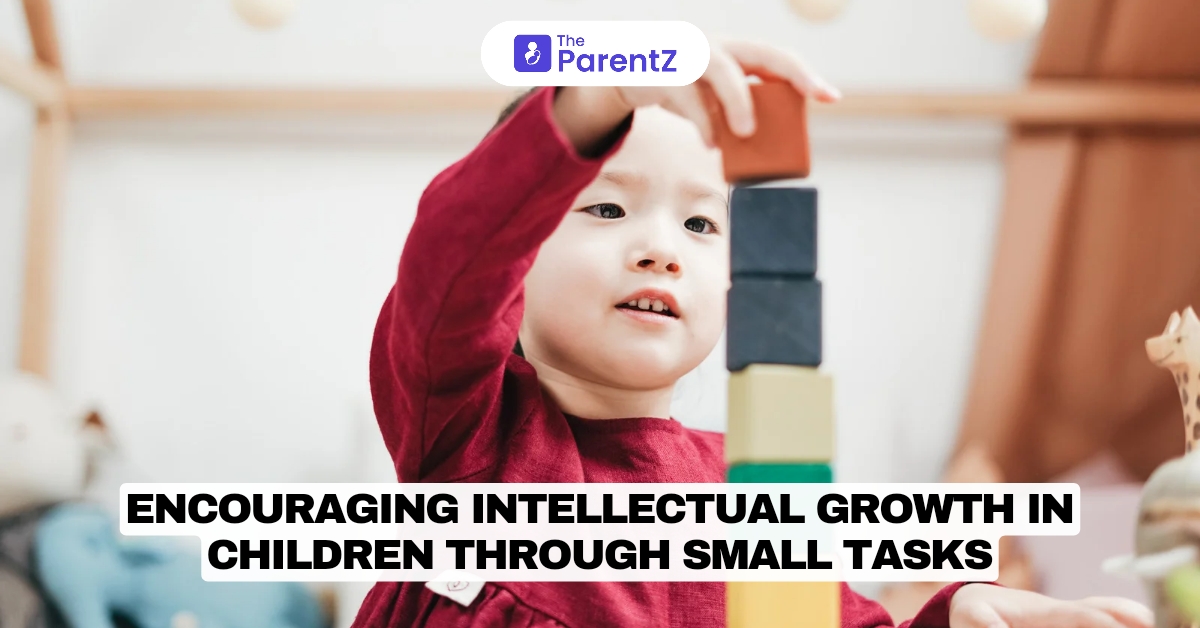Importance of Fostering Intellectual Growth in Children
Fostering intellectual growth in children is essential for their overall development and future success. Intellectual growth involves the enhancement of cognitive abilities, such as thinking, reasoning, problem-solving, and creativity. By encouraging intellectual growth, parents can help their children develop the skills necessary to navigate life’s challenges, achieve academic success, and become well-rounded individuals.
How Involving Children in Small Tasks Can Be Beneficial
One effective way to foster intellectual growth is by involving children in small tasks. These tasks, which can range from household chores to educational activities, provide children with opportunities to learn, practice new skills, and build confidence. Engaging in small tasks helps children develop a sense of responsibility and independence, while also promoting critical thinking and problem-solving abilities.
Types of Tasks Suitable for Children
Age-Appropriate Household Chores
Household chores are an excellent way to involve children in meaningful tasks that contribute to the family. The key is to assign age-appropriate chores that are manageable and safe. For younger children (ages 3-5), simple tasks like picking up toys, setting the table, or helping to sort laundry can be suitable. As children grow older (ages 6-10), they can take on more responsibilities such as making their bed, feeding pets, and assisting with meal preparation. Teenagers (ages 11+) can handle more complex chores like doing laundry, mowing the lawn, and cooking simple meals.
Educational Activities: Puzzles, Reading, and Problem-Solving Games
Educational activities are designed to challenge children’s minds and encourage learning in a fun and engaging way. Puzzles, for example, help develop spatial awareness, logical thinking, and patience. Reading is crucial for expanding vocabulary, improving comprehension, and stimulating imagination. Problem-solving games, such as board games or logic puzzles, enhance critical thinking and strategic planning skills. These activities not only promote intellectual growth but also provide opportunities for family bonding and shared learning experiences.
Creative Tasks: Arts and Crafts, Building Projects
Creative tasks allow children to express themselves and think outside the box. Arts and crafts activities, such as drawing, painting, and crafting, foster creativity, fine motor skills, and attention to detail. Building projects, like constructing models or using building blocks, encourage problem-solving, spatial reasoning, and perseverance. These tasks provide a platform for children to experiment, innovate, and develop a sense of accomplishment through creating something tangible.
Benefits of Involving Children in Small Tasks
Development of Problem-Solving Skills
Involving children in small tasks helps them develop problem-solving skills by presenting challenges that require thought and effort to overcome. Whether it’s figuring out how to assemble a puzzle, resolve a conflict during a game, or complete a household chore efficiently, children learn to approach problems methodically and think critically about solutions.
Enhancement of Critical Thinking and Creativity
Tasks that require decision-making and innovation enhance critical thinking and creativity. Educational activities and creative tasks encourage children to explore different perspectives, generate new ideas, and apply their knowledge in diverse ways. This mental flexibility is crucial for academic success and adaptability in various life situations.
Boost in Self-Confidence and Independence
Completing small tasks successfully boosts children’s self-confidence and fosters a sense of independence. When children see that they can contribute meaningfully to their family or achieve a goal through their efforts, they feel capable and valued. This increased self-esteem motivates them to take on new challenges and continue learning and growing.
Tips for Parents
How to Choose Appropriate Tasks for Different Age Groups
When selecting tasks for children, it’s important to consider their age, abilities, and interests. For younger children, start with simple, manageable tasks and gradually increase the complexity as they grow. Observe your child’s interests and strengths to tailor tasks that are both challenging and enjoyable. Providing clear instructions and demonstrating the task can help ensure they understand what is expected and feel confident in their abilities.
Encouraging a Positive Attitude Towards Learning and Helping
Promote a positive attitude towards learning and helping by making tasks fun and rewarding. Offer praise and encouragement for their efforts and achievements, rather than just the final outcome. Emphasize the value of contributing to the family and learning new skills. By creating a supportive and positive environment, children are more likely to approach tasks with enthusiasm and a willingness to learn.
Providing Support and Guidance While Allowing Independence
Balancing support and independence is key to fostering intellectual growth. Offer guidance and assistance when needed, but also allow children the freedom to try things on their own. Encourage them to ask questions, explore different methods, and learn from mistakes. This approach helps children develop problem-solving skills and confidence in their abilities while knowing they have a safety net if needed.
Conclusion
Summarizing the Advantages of Involving Children in Small Tasks
Involving children in small tasks provides numerous benefits for their intellectual growth. Through age-appropriate chores, educational activities, and creative tasks, children develop problem-solving skills, critical thinking, and creativity. They also gain confidence and a sense of independence by successfully completing tasks and contributing to their family.
Encouraging Parents to Be Proactive in Nurturing Their Child’s Intellectual Growth
Parents play a crucial role in nurturing their child’s intellectual growth. By thoughtfully selecting tasks, fostering a positive attitude towards learning, and providing balanced support and independence, parents can create an environment that encourages continuous learning and development. Taking proactive steps to involve children in meaningful tasks sets the foundation for a lifetime of intellectual curiosity, resilience, and achievement.








Be the first one to comment on this story.